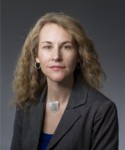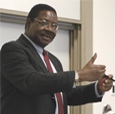A federal judge has approved a $7.73 million settlement in a U.S. government lawsuit claiming the nonprofit that administers the Law School Admissions Test discriminated against test-takers with disabilities.
 The lawsuit, filed in April 2012 in U.S. District Court for Northern California, said the Law School Admission Council set burdensome documentation requirements for students seeking accommodations for disabilities such as vision problems or attention-deficit disorder, then denied some requests anyway. The council, based in Newtown, Pa., administers more than 150,000 LSATs a year at a charge of $170 each.
The lawsuit, filed in April 2012 in U.S. District Court for Northern California, said the Law School Admission Council set burdensome documentation requirements for students seeking accommodations for disabilities such as vision problems or attention-deficit disorder, then denied some requests anyway. The council, based in Newtown, Pa., administers more than 150,000 LSATs a year at a charge of $170 each.
More than 200 law schools nationwide use the entrance exam to help determine which applicants are accepted. The suit also maintained that the organization’s practice of “flagging” the scores of students who were granted extra time to complete the test because of their disabilities was discriminatory. Student scores aren’t flagged for the SAT college entrance exam or for Graduate Record Examinations, both of which are administered by the nonprofit Educational Testing Service.
In addition to the monetary settlement, approved by U.S. District Judge Edward Chen on May 29, the Admission Council agreed to streamline the handling of requests by automatically granting most of the accommodations that test-takers show they’ve received for other standardized exams; implement other “best practices” based on recommendations from a panel of experts, and stop flagging scores of test-takers granted extended time.
The $7.73 million will cover a civil penalty of $55,000, payments of $945,000 to individual plaintiffs and the creation of a $6.73 million compensation fund for people who requested testing accommodations between Jan. 1, 2009, and May 20, 2014.
The disability settlement isn’t the Admission Council’s first with the Justice Department. It agreed to pay $20,000 in 2002 to settle claims that it requested unreasonable documentation from people with physical disabilities and failed to provide allowances required under the Americans With Disabilities Act. That agreement didn’t cover handling applicants with learning or psychological disabilities.
The Admission Council, which didn’t admit any liability in the 2002 settlement or in the current one, said the Justice Department had been aware that it flagged test scores since at least 1986 and helped craft the wording used to notify test-takers of the practice. The request forms given to people seeking special accommodations were negotiated with the Justice Department in 2002, council spokeswoman Wendy Margolis said in an e-mailed statement in May. Margolis said the council settled the most recent case because ongoing litigation wasn’t “in the best interests of our member schools or prospective law school students.”
VERMONT LAW ONLINE
Vermont Law School has doubled the online degree offerings it introduced this decade with two new programs: a master’s degree in energy regulation and law and an LL.M. in energy law.
The energy-regulation degree aims to deliver a broad-based understanding of energy law and policy for students with or without a law degree. The LL.M. is for students who already have a juris doctorate and want to enhance their expertise in energy law.
“Online is an exciting new delivery method for programs we first offer on-campus that benefits students and faculty,” said Rebecca Purdom, an environmental law professor and Vermont’s associate dean of innovation and new programs.
Students with jobs, families and, often, industry expertise who can’t spend many months on campus now can access well-regarded programs from anywhere in the U.S., Purdom said. “And faculty members have an opportunity to master a highly interactive, creative and, thus, rewarding kind of pedagogy.”
Vermont Law took its master’s degree in environmental law and policy and its LL.M. (post- J.D.) degree in environmental law fully online in 2010.
Purdom said the Vermont faculty members work with instructional designers who help put together the many interactive and experiential pieces of an online course. She also does a lot of the training, assisting professors in reconsidering how they teach.
“You have to think through your goals and how to assess whether students ‘get it,’” she said. “You don’t want them parroting back lectures on a test. Instead, you want to devise activities that allow students to demonstrate achievement.”
The American Bar Association Section of Legal Education and Admissions to the Bar, the ABA’s accrediting arm for law-degree programs, established online course restrictions for J.D. candidates only. Standard 306 nixes distance learning in their first year and limits them as 2Ls and 3Ls to no more than 12 credit hours total, with no more than 4 credit hours in any given term. An agency spokesman said it’s poised to increase that to 15 credit hours.
The Vermont Law School students will have enormous flexibility, Purdom said.
“They can flip back and forth between online and on-campus classes, if that works for them, since these are the same courses, the same curriculum, the same professors.” The programs are also asynchronous, meaning that students don’t have to be online at the same time as classes are made available for time periods.
Both energy master’s degree programs comprise 30 credit hours and include a core of required courses, a choice of 50 environmental and energy course electives, and opportunities for an externship or assisting with research at the school’s Institute for Energy and the Environment, where students work alongside energy experts.
The programs can be completed in as few as 18 months, school administrators said.
Online programs are more intensive than their on-campus counterparts, Purdom said. “We limit the size of each section to maybe 15 people, which means there is no place to hide as you can in a large classroom,” she said. “When professors post a statement they expect all students to react and then to engage in dialogue. They can see who hasn’t joined the conversation, who hasn’t posted comments or their analysis and query them directly.”
In an online space, she added, “There is no back of the classroom.”
THEY’RE LAWYERS?
File this under “You’ll Never Guess Who’s a Lawyer” and start sending in your finds. (You can even try stumping us with several equally challenging possibilities.)
We’ll start with the newly elected president of Malawi, a nation in southern Africa battling a HIV/AIDS rate and a slow, mostly agricultural, economy. A. Peter Mutharika received his law degree from the University of London in 1965, an LL.M. from Yale in 1966 and a J.S.D. degree (Yale again) in 1969.
Here’s the surprise: During a lengthy academic career, he taught at Rutgers University in Camden, New Jersey, and then, for 39 years starting in 1972 , at Washington University School of Law in St. Louis. According to the law school’s website, at his July 2011 retirement, he was the Charles Nagel Professor of International and Comparative Law and considered an expert on international economic law, international law and comparative constitutional law.
Contact Margot Slade at (646) 722-2623 or margot@lawdragon.com. Contact James Langford at (646) 722-2624 or james@lawdragon.com.


